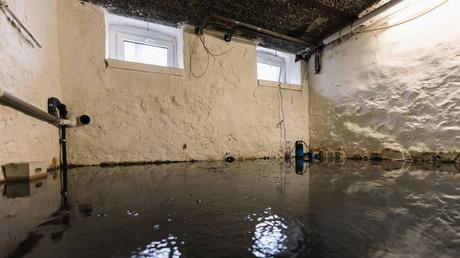
Last Updated on January 25, 2024 by Kravelv
Basements can be great for storage, extra living spaces, or even cozy entertainment areas. However, when they flood, it can cause a lot of damage and unexpected expenses. Fortunately, the most common causes of basement flooding can often be prevented, making it essential for homeowners to stay informed and prepared.
Heavy Rainfall and Storms
Heavy rainfall can quickly fill gutters and saturate the ground around your basement area. When the groundwater level rises, water can find its way into your basement through cracks in the foundation or through walls, windows, and other weak points. Make sure you maintain your gutter system to ensure proper drainage, and keep an eye on weather forecasts so you can double-check everything before a storm hits. Installing a good quality sump pump can also help reduce the risk of flooding.
Plumbing Leaks and Pipe Bursts
Plumbing leaks or pipe bursts are another common cause of basement flooding. If your basement plumbing is neglected, it can cause serious water damage. Pay close attention to the visible plumbing in your basement, such as floor drains, laundry or utility areas, and the water heater. The best way to prevent plumbing mishaps is by remaining vigilant and detecting basement leaks early. Perform monthly inspections and watch out for any noticeable water damage to prevent more severe issues from developing.
Sewer Backups and Blocked Drains
Sewer backups are some of the most dreaded causes of basement flooding. A blocked main sewer line usually causes this problem, leading to sewage backup through the floor drain. Maintain your sewer system by avoiding flushing anything that could cause blockages and consider installing a backwater valve to prevent sewage backing up into other plumbing lines.
Foundation Cracks and Gaps
Cracks and gaps in a basement's foundation and walls are a common issue in many homes. The smallest of cracks can allow water to seep in over time, leading to potential flooding. Therefore, it's essential to inspect your basement walls regularly and repair any cracks or gaps as you find them. Consider hiring a professional to evaluate your basement's foundation and secure its structural integrity.
Understanding these common causes of basement flooding is the first step in protecting your home from water damage. The more aware and hands-on you are about your home maintenance, the safer your household will be. The ultimate goal is to make your basement a safe and dry space that everyone can enjoy.
